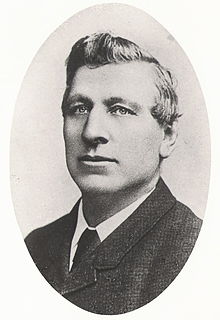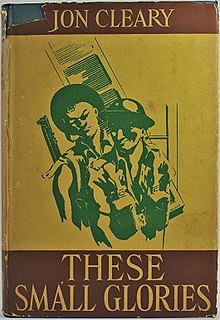Related Research Articles

Charles Upfold, Justice of the Peace, was an English soap manufacturer of great prominence in Australia. He was also a Director of Aberdare Collieries Co. Ltd., and the Chairman of the board of management for its railways.
The Newcastle Herald is a local tabloid newspaper published daily, Monday to Saturday, in Newcastle, New South Wales, Australia. It is the only local newspaper that serves the greater Hunter Region and Central Coast region six days a week. It is owned by Australian Community Media.

David Watkins was an Australian politician. He was an Australian Labor Party member of the New South Wales Legislative Assembly for Wallsend from 1894 until 1901. At Federation, he was elected to the new Australian House of Representatives as the Labor member for Newcastle and served until his death in 1935. Watkins' death left former Prime Minister Billy Hughes as the only remaining member of the First Parliament still in the House.

William Thomas Dick was a politician, teacher, actuary and barrister in New South Wales, Australia.

Eureka Stockade is a 1949 British film of the story surrounding Irish-Australian rebel and politician Peter Lalor and the gold miners' rebellion of 1854 at the Eureka Stockade in Ballarat, Victoria, in the Australian Western genre.
Rupert Kathner (1904–1954) was an Australian film director best known for newsreels and low-budget films. He worked with Alma Brooks, an ex-barmaid, who co-produced, operated the camera, edited, co-scripted and acted in their films. Kathner and Brooks were also "shady con artists and fugitives from the law", sometimes described as the "Bonnie and Clyde" of the Australian film industry.
The Church and the Woman is a 1917 Australian silent film directed by Raymond Longford set against the background of sectarianism in Australia. It is considered a lost film.
The Lady Outlaw is a 1911 Australian silent film set in Van Diemen's Land during convict days.
Way Outback is a 1911 Australian silent film directed by Alfred Rolfe. It was described as "a typical Australian story of mining life in the back blocks" and being "full of action and incident".
The Cup Winner is a 1911 Australian silent film directed by Alfred Rolfe. It is set against a backdrop of horseracing and the finale involves real footage from the 1911 Melbourne Cup.
Whose Was the Hand? is a 1912 Australian silent film directed by Alfred Rolfe. It is considered a lost film.
The Sunny South, or the Whirlwind of Fate is a 1915 Australian silent film directed by Alfred Rolfe based on the popular play The Sunny South by George Darrell. It is considered a lost film.

The Loyal Rebel is a 1915 Australian silent film directed by Alfred Rolfe set against the background of the Eureka Rebellion.
Dan Morgan is a 1911 Australian film from Charles Cozens Spencer about the bushranger Daniel Morgan. It was said to be starring "Alfred Rolfe and company". Rolfe directed three movies for Spencer, all starring himself and his wife Lily Dampier so there is a chance he may have directed this one and that it starred his wife. A prospectus for the Australian Photo Play Company said he directed it. It is considered a lost film.
John Christian Reid, JP was a New South Wales businessman, yachtsman and alderman, who served several terms as Mayor of Newcastle.
A Sport from Hollowlog Flat is a 1915 novel by Arthur Wright. It consisted of a series of short stories he had published previously for various magazines.
SS Oakland was a small general cargo/passenger ship commissioned in 1890, Dumbarton, Scotland, for New South Wales, Australia, timber merchant William T Yeager. It sank off Cabbage Tree Island, New South Wales, in 1903, with the loss of 11 lives.
In Strange Company : a story of Chili and the southern seas (1894) is a novel by Australian writer Guy Boothby.
Stephen Vost Janssen was Australian violin and viola player, teacher and composer, member of the Sydney String Quartet and Austral String Quartet.

These Small Glories was a collection of short stories by Australian author Jon Cleary which was published in 1946. They were set during World War II, during which Cleary had served in the Australian army.